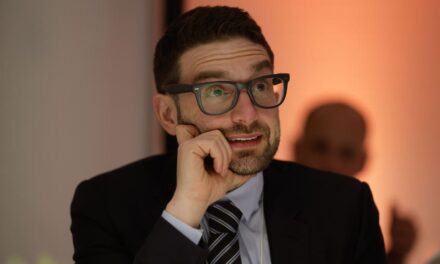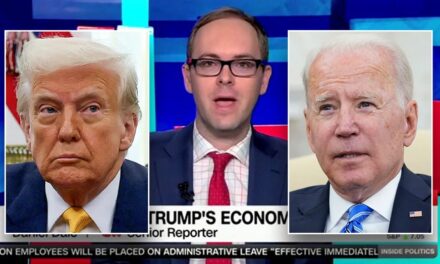A prominent biohacker has issued a stark warning regarding the health of Americans, suggesting that the nation is unknowingly engaging in a toxic practice known as “micro-poisoning.” This revelation comes against the backdrop of the staggering $5 trillion annual expenditure on healthcare in the United States, a figure that fuels the ongoing debate about the effectiveness of the healthcare system.
The biohacker, who has gained recognition for his unconventional approaches to health and wellness, posits that despite pouring an immense amount of money into healthcare, Americans are still suffering from unprecedented levels of chronic illness and disease. He attributes these health issues to the accumulation of harmful substances in everyday products, foods, and the environment, which collectively contribute to what he describes as micro-poisoning.
“We are living in a society that is bombarded with toxins. It’s in the air we breathe, the water we drink, and the food we eat,” the biohacker stated during a recent seminar aimed at educating people about the hidden toxins that permeate daily life. “The irony is that while we spend these astronomical sums on healthcare, we’re still getting sicker. We’re effectively poisoning ourselves with every decision we make, often without even realizing it.”
The concept of micro-poisoning encompasses a wide range of issues—from environmental pollutants and synthetic chemicals in food products to heavy metals and even microplastics. Each of these factors can contribute to long-term health issues, such as autoimmune diseases, hormonal imbalances, and neurological disorders. The biohacker emphasized that it’s not just the obvious sources of toxins that pose a threat; rather, it’s the everyday items many people consider harmless.
“Take a look at your shampoo or your cleaning products. Many are filled with endocrine disruptors that can interfere with hormonal health. We wash our bodies with them every day, and the cumulative effect is gradual but real,” he cautioned. Concern over these commonplace items has sparked an increasing demand for transparency in labeling and stronger regulation of the substances used in consumer products.
In the seminar, the biohacker presented alarming data indicating that many Americans remain largely unaware of the extent to which they are exposed to harmful chemicals. He claimed that, according to recent studies, nearly 85% of common household products contain substances that could be detrimental to health. He encourages consumers to be vigilant, pursuing natural alternatives and thoroughly researching the components of products they might otherwise trust.
Additionally, the biohacker noted the impact of diet on the prevalence of micro-poisoning. Processed foods often contain additives and preservatives that can accumulate in the body over time. “People think they’re eating healthy when they consume what’s marketed as nutritious, but many of these ‘health foods’ can be just as harmful as junk food,” he explained. He advocates for a return to whole foods, emphasizing fresh produce and minimally processed ingredients.
“Simply put, our bodies are not designed to handle the barrage of chemicals we encounter in modern life. If we’re not actively taking steps to rid our bodies of these toxins, we’re likely going to pay for it in the long run,” he warned. His views resonate with a growing movement of consumers who are advocating for cleaner, more sustainable living practices and seeking to understand the implications of their choices better.
The biohacker’s insights have sparked conversations across various platforms, from health blogs to social media, where many are voicing their concerns about the implications of micro-poisoning. Influencers and health-conscious individuals alike are sharing their experiences of transitioning to toxin-free lifestyles, often bonding over the challenges of navigating a marketplace saturated with misleading claims about safety and health.
There are also discussions regarding the role of regulatory bodies in overseeing the safety of products sold to consumers. The biohacker criticized current regulations, emphasizing that they often lag behind scientific research. “Regulatory agencies need to catch up with the science. Just because something is approved for use does not mean it’s safe,” he stated, urging for more stringent testing of consumer goods.
The biohacker has taken his message to a broader audience through various multimedia campaigns, including a podcast series dedicated to exploring the hidden dangers in everyday life. The series features interviews with experts in nutrition, health, and environmental science, all of whom reinforce the importance of understanding and mitigating micro-poisoning.
Listeners are often astonished by the stories shared during these discussions, revealing how seemingly innocuous decisions can lead to negative health outcomes. The podcast serves as a resource for individuals looking to make informed choices about the products they use and the foods they eat.
Meanwhile, grassroots movements focused on healthy living are gaining momentum. Community groups are forming to educate members about micro-poisoning and advocate for local policies that support clean living. Workshops are being held to teach participants about DIY alternatives to chemical-laden products, including natural cleaning supplies and organic personal care items. Such initiatives promote community engagement and foster collective action towards a healthier environment.
There is also a growing recognition of the need for systemic change. Advocates are pushing for comprehensive reforms in agricultural practices, manufacturing processes, and environmental protections to minimize exposure to harmful substances. This call to action is particularly relevant amid increasing concerns about climate change and its impact on public health.
As the conversation around micro-poisoning continues to evolve, one significant challenge remains: how to effectively communicate the urgency of these issues to a broader audience. The biohacker emphasizes that awareness is the first step, but actionable change must follow.
“We need to move beyond just raising awareness and start applying pressure for change on all levels. Whether it’s through consumer choices, advocacy, or education, we can collectively make a difference. This is about safeguarding our health and futures,” he urged.
In a nation that dedicates a vast portion of its resources to healthcare, the paradox of deteriorating health standards certainly warrants attention. The biohacker’s analogy of micro-poisoning reveals a crucial narrative about health in America today—one in which self-inflicted harm may be contributing to systemic failures within the healthcare landscape.
Despite the daunting nature of the challenges posed by micro-poisoning, the biohacker’s message is one of empowerment: Individuals possess the agency to take control of their health through informed choices. By making concerted efforts to buy cleaner products, opting for organic foods, and advocating for regulatory reforms, Americans can begin to counteract the toxic influences prevalent in their daily lives.
Ultimately, the biohacker’s call to action is an invitation for collective engagement—a movement toward a healthier society that recognizes the profound impact of everyday choices. As discussions surrounding micro-poisoning gain visibility, it is hoped that they will prompt a broader rethinking of how health is prioritized in America, paving the way for more sustainable and holistic approaches to well-being.
































